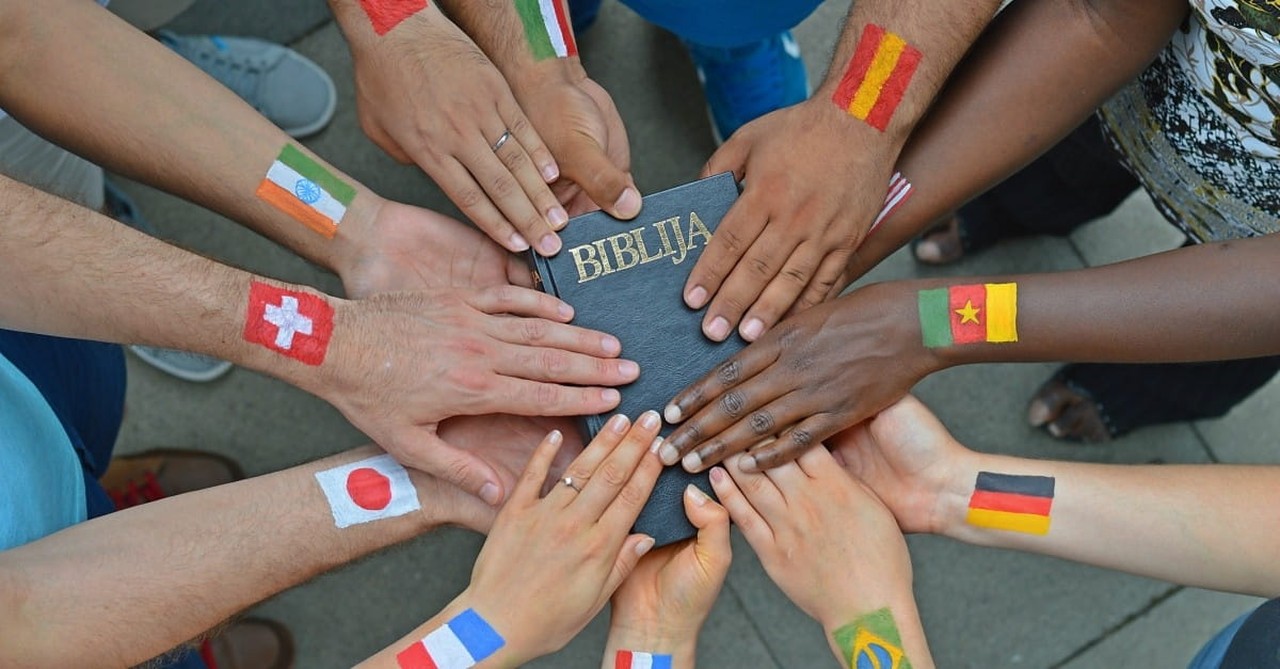The 10 Most Overlooked People in Your Church

People should feel comfortable in church. They should feel valued and included, but sometimes people feel overlooked. And the very groups created for community might serve as painful reminders of another place people feel invisible.
When Jesus walked the earth, He ministered to everyone; not one person was overlooked. Whether we’re talking about the woman with the issue of blood, the lame, the poor, or even those with leprosy, it is certain that nobody was invisible to Jesus.
As Christ-Followers, we are to look around. If we prayerfully reach out in whatever circles we find ourselves, maybe no one will be overlooked. So who are the people who might feel forgotten?
Here are the ten most overlooked people in your church.
Photo credit: ©Thinkstock
1. Single People

1. Single People
SLIDE 1 OF 10
Those who are single could be any age. Some have never married, some had marriages that ended in divorce, and some became widows or widowers.
No person marries someone thinking that one day their marriage will dissolve.
And widowed people thought they married for the long haul, not to have it cut short.
Many divorced people are also single parents raising their kids.
When you think about programs in the church, with the exception of a short program for those newly divorced, none of them are really geared towards these hurting people.
Divorced people are trying hard to provide for their families, and attempting to stand in for the missing parent. They are often quite exhausted, yet they keep putting one foot in front of another.
Yes, single people are often overlooked. God tells us to care for one another -- surely he meant everyone.
Photo Credit: ©Unsplash/PhotobyAndyLee
2. People With Illnesses

2. People With Illnesses
SLIDE 2 OF 10
Some people struggle with an illness that never seems to end.
Others struggle with what they refer to as an invisible illness; someone could look at them and not be able to tell that they struggle.
Those who are ill have seen people they care about just remove themselves from their lives. Perhaps their friends simply wish that they would get better so they could resume their friendship. Some cannot accept that their friends will struggle with this long term.
Whether it’s an emotional illness or a physical illness, the person who has this journey is exhausted. They are lonely and often wonder if anyone misses them at all.
In Mark 2:1-12, we learn how Jesus healed a paralytic. If God cares about those who are ill, so should we. We should let the people who are ailing know they are not forgotten.
Photo Credit: ©GettyImages
3. College-Aged Kids

3. College-Aged Kids
SLIDE 3 OF 10
Some churches have groups for college-aged kids; the problem is that immediately after someone graduates college, they are no longer included in these groups.
Some people in church started joining groups from the time their parents carried them into the nursery. During their school-age years, many of them found guidance through youth leaders. Some were lucky enough to be involved with mission trips as well.
College kids are still in need of socialization, but so are the ones who finish college. Not everyone will take the path of marriage, and the church is losing a big opportunity to reach out to this group of young people.
Even inviting them to other groups would at least be a start. Leaving it up to the individual by simply mentioning it is not enough. A personal invitation makes someone feel wanted. Who wouldn’t want that?
Photo Credit: ©GettyImages
4. Emotionally Wounded People

4. Emotionally Wounded People
SLIDE 4 OF 10
At times, you may see people in the church who tend to stay back. They seem to like church and attend regularly, but somehow you just sense that something is amiss. There is a chance that they have had a negative church experience in the past. When someone is hurt in the church, it feels like a double whammy. Not only are they wounded, but they are wounded by people they trusted.
Going slowly with hurt people is a good idea.
Give them grace; let them know you would love to have them in a group. This will make it easier for them to join. Proverbs 18:19 talks about how hard it is to help a brother who has been offended, and yet God is a God of reconciliation.
Photo Credit: ©GettyImages/SIphotography
5. People Who Have Lost a Spouse

5. People Who Have Lost a Spouse
SLIDE 5 OF 10
Martha used to be very active in the church. She used to work in the church years ago, and she knows just about everyone. But not long ago, Earl passed away. Martha attended the grief class, and for a while she felt connected. But now her group has ended, and she feels the loneliness of her life without her husband.
Martha and Earl had many friends, but now Martha feels like a third wheel when she sees them.
Sometimes Martha just wants to experience that feeling of belonging, and she is afraid that she’ll never have it again.
God speaks of widows in James 1:27.
Churches should offer groups mixed with people in all stages of life; that way, everyone could learn from each other.
Photo Credit: ©GettyImages/CandyBoxImages
6. People from Different Cultural Backgrounds

6. People from Different Cultural Backgrounds
SLIDE 6 OF 10
We noticed the young man right away. He had come to our church when he was in the Network of Nations, a group that introduces people of different cultures to the rest of the church. He decided to continue going to the church after he graduated, but struggled to know where he fit in.
Those who are from a different culture would love to know that they have a place in the church.
My husband and I lived in Germany while he was stationed there. We had the opportunity to rent an apartment in a house belonging to a wonderful German family. The daughter, Monica, answered any questions we had about the country. In a couple of years, her brother was going into a foreign exchange program. Luckily, there are churches who have programs for those with different backgrounds.
We should do all we can to help those who are not from our country.
Photo Credit: ©GettyImages/RoterPanther
7. People Who Struggle Financially

7. People Who Struggle Financially
SLIDE 7 OF 10
It should be no surprise that those who struggle financially feel overlooked. When there is a plea for money, they sit in the seat feeling like they are not able to help. Often, they will not take part in church activities because they cannot afford to.
Those who are in need hate the fact that they are unable to pay their bills. They struggle with their self worth, wondering what is wrong with them.
Jesus didn’t put down those who had less; in fact, He himself did not have much in terms of this world’s goods.
God wants us to reach out to those in need. What better way than to offer them kindness and a place where they can come and worship with us?
Photo Credit: ©GettyImages
8. Introverts

8. Introverts
SLIDE 8 OF 10
When there is an announcement for new groups forming, you can bet that there will be people who will cringe. They would like to be part of a group and know there is a place where they belong, but they shy away. These people are introverts.
Perhaps they tried one group but found it too difficult to interact, when just talking to another person takes so much energy.
Then, when the announcements are given, they stand there almost frozen as others move about the church welcoming others.
Yes, introverts need to socialize with others; the challenge is getting them comfortable to even try a group. Introverts are sometimes overlooked.
Photo Credit: ©GettyImages
9. People Without Children

9. People Without Children
SLIDE 9 OF 10
Another group of people who sometimes get overlooked are those who have no children. There just doesn’t seem to be a place for these dear people. The majority of people who are married have children, so when those who don’t are placed in these groups, you can imagine how it must feel when the subject of kids keeps coming up.
The church is a diverse group of people, but the common bond is Jesus. Some people, however, make other factors into dividing lines.
Photo Credit: ©GettyImages/moodboard
10. People Who Live Different Lifestyles

10. People Who Live Different Lifestyles
SLIDE 10 OF 10
People who live different lifestyles are often overlooked. Once again, our focus should be on what unifies us instead of what divides us.
Even if we don’t have a lot in common with those who live different lifestyles, we can ask God to show us how we can make a valuable connection with them.
Jesus came and died for the world -- even those He knew would reject Him. It makes sense to include others. And when we are afraid, God will give us the courage we need to do the job He would have us do.
Photo Credit: ©GettyImages/Rawpixel
Originally published December 09, 2025.






